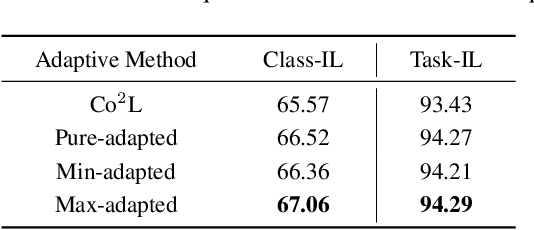Provable Contrastive Continual Learning
Paper and Code
May 29, 2024



Continual learning requires learning incremental tasks with dynamic data distributions. So far, it has been observed that employing a combination of contrastive loss and distillation loss for training in continual learning yields strong performance. To the best of our knowledge, however, this contrastive continual learning framework lacks convincing theoretical explanations. In this work, we fill this gap by establishing theoretical performance guarantees, which reveal how the performance of the model is bounded by training losses of previous tasks in the contrastive continual learning framework. Our theoretical explanations further support the idea that pre-training can benefit continual learning. Inspired by our theoretical analysis of these guarantees, we propose a novel contrastive continual learning algorithm called CILA, which uses adaptive distillation coefficients for different tasks. These distillation coefficients are easily computed by the ratio between average distillation losses and average contrastive losses from previous tasks. Our method shows great improvement on standard benchmarks and achieves new state-of-the-art performance.
 Add to Chrome
Add to Chrome Add to Firefox
Add to Firefox Add to Edge
Add to Edge